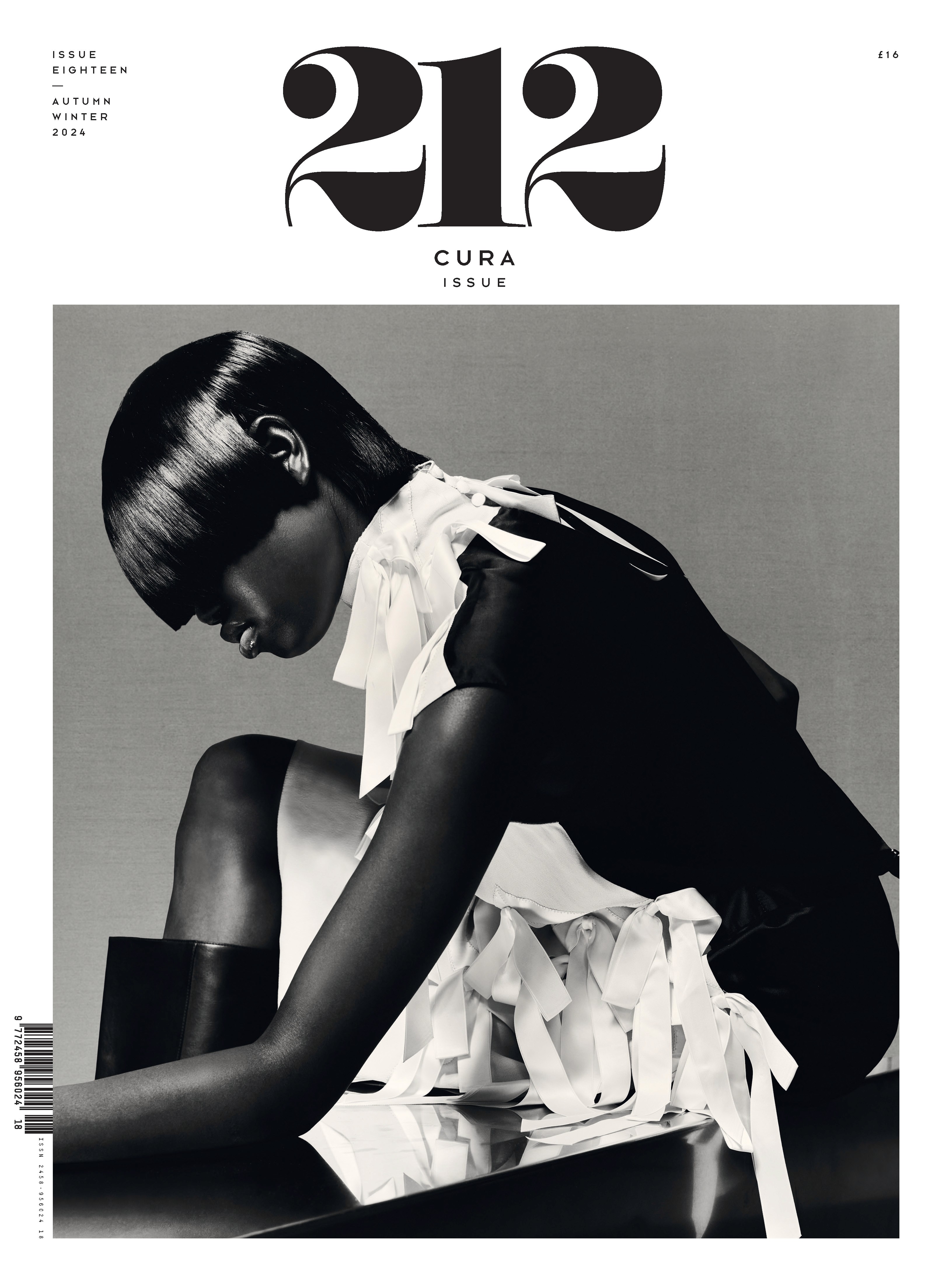
‘Time is our most significant non-replenishable resource,’ says the Iranian-American writer Kaveh Akbar, now sober for eleven years.‘
INTERVIEW BY AYTEN TARTICI
Such is the passing world that you must leave,’ writes Ferdowsi in the Shahnameh, ‘All men must die, and it is vain to grieve’. Those two epiphanies – that death is the great equaliser and it is pointless to mourn its inevitable sting – steer the Iranian-born American writer Kaveh Akbar’s witty, new novel Martyr! (2024).
When we meet on Zoom to talk, Akbar is in front of his desk in Iowa City, where he serves as director of the English and Creative Writing Major. He is walking on top of a treadmill, to help with his back pain. Characteristic of his interest in code-switching between different languages, he is wearing a black baseball cap that prominently features the letters ‘A’ and ‘R’ followed by their equivalents in the Arabic alphabet. I am in Santa Fe, New Mexico, surrounded by yucca plants, paprika yarrows, desert willows and white daisies. I faintly hear my two-year-old daughter, sniffing the petals and sounding out the word flower (‘foo-lau-er’). I decide that I would not sacrifice a finger for a Breughel.
Kaveh and I talk about what a modern day epiphany might look like, what home means to him, how martyrdom can come cloaked in less flashy forms and how staying alive is its own marvel. In spite of the dark humour that sometimes colours his work, Akbar is upbeat and focused. Once our time is up, he says he must return to his partner, who is waiting downstairs, back to those kind enough to keep us.
A: How do you maintain your sanity in the midst of this chaotic world?
K: I stay very small.
A: How do you stay small?
K: There is a prayer called, the ‘Serenity Prayer’, in certain recovery circles, that says, ‘Grant me the serenity to accept the things I cannot change, the courage to change the things I can and the wisdom to know the difference’, which I’ve said thousands and thousands, and thousands of times in my life. I still get pretty bowled-over by the radical poetry of each little third of it. The serenity to accept the things I cannot change, the courage to change the things I can and the wisdom to know the difference.
The actions that are available to me in this world, generally speaking, are small and unsexy and mostly local. I try in each moment to figure out what the next right thing for me to do is and do that thing.
So right now, the right thing for me to do is to talk to my new friend, Ayten. And then after that, the right thing for me to do would be to walk my dog… And then the right thing for me to do would probably be to call my nieces, because I try to call them on the weekends, I never have to look past that immediate next thing.
When my eyes get too big, when I start to get a little vertiginous, that’s an occasion for me to shrink the aperture a little bit, to get smaller, to get more granular, to get more quotidian. I can get as small as walking over and boiling some water for tea. I can get as small as ‘breathe in, breathe out’. Staying very, very, very small is the only way I know how to keep myself in the game.
‘Time is our most significant non-replenishable resource,’ says the Iranian-American writer Kaveh Akbar, now sober for eleven years.‘
INTERVIEW BY AYTEN TARTICI
Such is the passing world that you must leave,’ writes Ferdowsi in the Shahnameh, ‘All men must die, and it is vain to grieve’. Those two epiphanies – that death is the great equaliser and it is pointless to mourn its inevitable sting – steer the Iranian-born American writer Kaveh Akbar’s witty, new novel Martyr! (2024).
When we meet on Zoom to talk, Akbar is in front of his desk in Iowa City, where he serves as director of the English and Creative Writing Major. He is walking on top of a treadmill, to help with his back pain. Characteristic of his interest in code-switching between different languages, he is wearing a black baseball cap that prominently features the letters ‘A’ and ‘R’ followed by their equivalents in the Arabic alphabet. I am in Santa Fe, New Mexico, surrounded by yucca plants, paprika yarrows, desert willows and white daisies. I faintly hear my two-year-old daughter, sniffing the petals and sounding out the word flower (‘foo-lau-er’). I decide that I would not sacrifice a finger for a Breughel.
Kaveh and I talk about what a modern day epiphany might look like, what home means to him, how martyrdom can come cloaked in less flashy forms and how staying alive is its own marvel. In spite of the dark humour that sometimes colours his work, Akbar is upbeat and focused. Once our time is up, he says he must return to his partner, who is waiting downstairs, back to those kind enough to keep us.
A: How do you maintain your sanity in the midst of this chaotic world?
K: I stay very small.
A: How do you stay small?
K: There is a prayer called, the ‘Serenity Prayer’, in certain recovery circles, that says, ‘Grant me the serenity to accept the things I cannot change, the courage to change the things I can and the wisdom to know the difference’, which I’ve said thousands and thousands, and thousands of times in my life. I still get pretty bowled-over by the radical poetry of each little third of it. The serenity to accept the things I cannot change, the courage to change the things I can and the wisdom to know the difference.
The actions that are available to me in this world, generally speaking, are small and unsexy and mostly local. I try in each moment to figure out what the next right thing for me to do is and do that thing.
So right now, the right thing for me to do is to talk to my new friend, Ayten. And then after that, the right thing for me to do would be to walk my dog… And then the right thing for me to do would probably be to call my nieces, because I try to call them on the weekends, I never have to look past that immediate next thing.
When my eyes get too big, when I start to get a little vertiginous, that’s an occasion for me to shrink the aperture a little bit, to get smaller, to get more granular, to get more quotidian. I can get as small as walking over and boiling some water for tea. I can get as small as ‘breathe in, breathe out’. Staying very, very, very small is the only way I know how to keep myself in the game.
‘Time is our most significant non-replenishable resource,’ says the Iranian-American writer Kaveh Akbar, now sober for eleven years.‘
INTERVIEW BY AYTEN TARTICI
Such is the passing world that you must leave,’ writes Ferdowsi in the Shahnameh, ‘All men must die, and it is vain to grieve’. Those two epiphanies – that death is the great equaliser and it is pointless to mourn its inevitable sting – steer the Iranian-born American writer Kaveh Akbar’s witty, new novel Martyr! (2024).
When we meet on Zoom to talk, Akbar is in front of his desk in Iowa City, where he serves as director of the English and Creative Writing Major. He is walking on top of a treadmill, to help with his back pain. Characteristic of his interest in code-switching between different languages, he is wearing a black baseball cap that prominently features the letters ‘A’ and ‘R’ followed by their equivalents in the Arabic alphabet. I am in Santa Fe, New Mexico, surrounded by yucca plants, paprika yarrows, desert willows and white daisies. I faintly hear my two-year-old daughter, sniffing the petals and sounding out the word flower (‘foo-lau-er’). I decide that I would not sacrifice a finger for a Breughel.
Kaveh and I talk about what a modern day epiphany might look like, what home means to him, how martyrdom can come cloaked in less flashy forms and how staying alive is its own marvel. In spite of the dark humour that sometimes colours his work, Akbar is upbeat and focused. Once our time is up, he says he must return to his partner, who is waiting downstairs, back to those kind enough to keep us.
A: How do you maintain your sanity in the midst of this chaotic world?
K: I stay very small.
A: How do you stay small?
K: There is a prayer called, the ‘Serenity Prayer’, in certain recovery circles, that says, ‘Grant me the serenity to accept the things I cannot change, the courage to change the things I can and the wisdom to know the difference’, which I’ve said thousands and thousands, and thousands of times in my life. I still get pretty bowled-over by the radical poetry of each little third of it. The serenity to accept the things I cannot change, the courage to change the things I can and the wisdom to know the difference.
The actions that are available to me in this world, generally speaking, are small and unsexy and mostly local. I try in each moment to figure out what the next right thing for me to do is and do that thing.
So right now, the right thing for me to do is to talk to my new friend, Ayten. And then after that, the right thing for me to do would be to walk my dog… And then the right thing for me to do would probably be to call my nieces, because I try to call them on the weekends, I never have to look past that immediate next thing.
When my eyes get too big, when I start to get a little vertiginous, that’s an occasion for me to shrink the aperture a little bit, to get smaller, to get more granular, to get more quotidian. I can get as small as walking over and boiling some water for tea. I can get as small as ‘breathe in, breathe out’. Staying very, very, very small is the only way I know how to keep myself in the game.

is a large format international biannual magazine from Istanbul. Focusing on arts, culture and society, each issue tackles various universal subjects within a distinct theme.
Address
Karaköy Tarihi Un Değirmeni Binası, Kemankeş Mahallesi, Ali Paşa Değirmen Sokak 16, 34425, Karaköy Istanbul, Turkey
+90 212 232 4288
contact@212magazine.com

is a large format international biannual magazine from Istanbul. Focusing on arts, culture and society, each issue tackles various universal subjects within a distinct theme.
Address
Karaköy Tarihi Un Değirmeni Binası, Kemankeş Mahallesi, Ali Paşa Değirmen Sokak 16, 34425, Karaköy Istanbul, Turkey
+90 212 232 4288
contact@212magazine.com

is a large format international biannual magazine from Istanbul. Focusing on arts, culture and society, each issue tackles various universal subjects within a distinct theme.
Address
Karaköy Tarihi Un Değirmeni Binası, Kemankeş Mahallesi, Ali Paşa Değirmen Sokak 16, 34425, Karaköy Istanbul, Turkey
+90 212 232 4288
contact@212magazine.com

